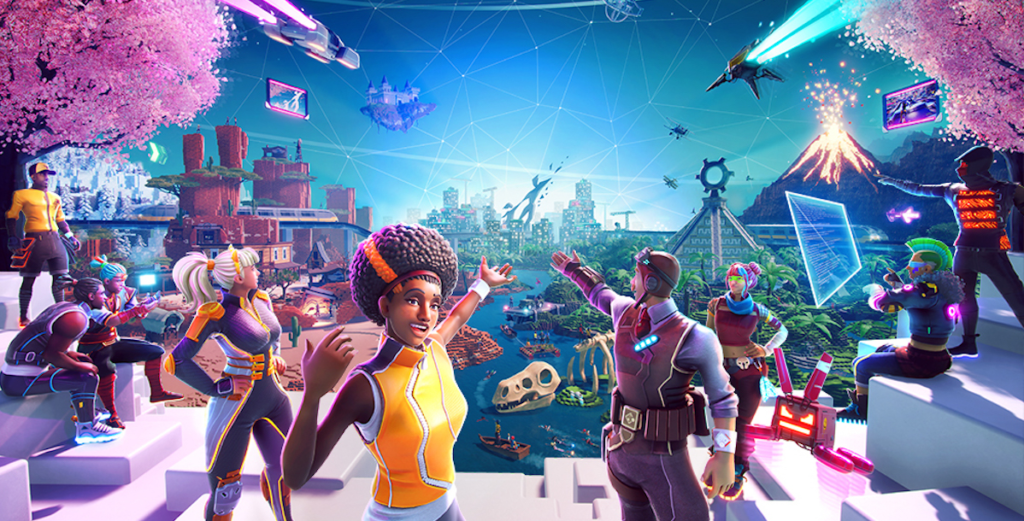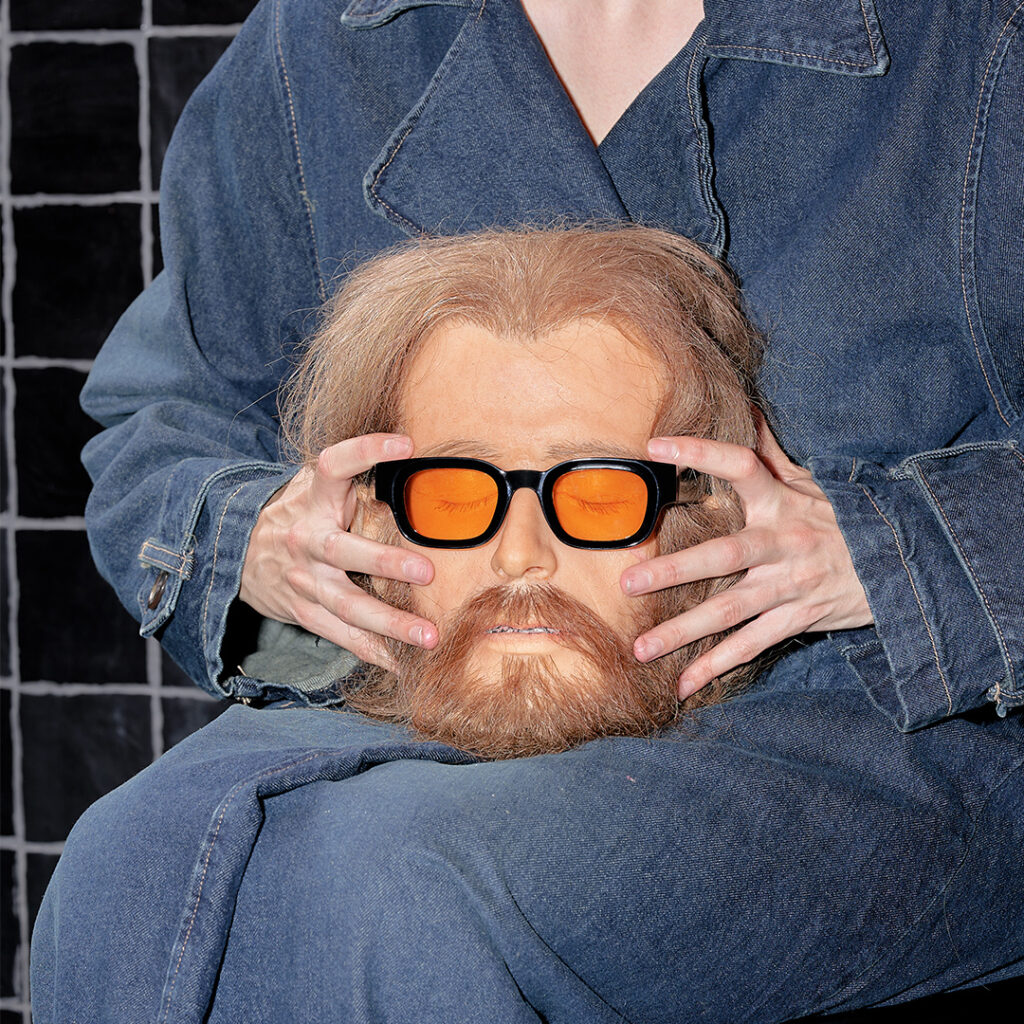Is Metaverse the egalitarian utopia that we have all been waiting for? Its inherent decentralization, freedom, and unchartedness would suggest so. However, the reality is a tad more complex. Nothing in life is perfect, and the Metaverse is no exception. Albeit being able to level the plainfield and offer the potential for a better living, it may also mirror many socio-ethical questions that we already struggle with in the physical world.
Let’s delve into this particular territory to explore some of the ethical concerns that come along with the Metaverse. Sure, it may seem unpleasant to talk about, but it’s a crucial discussion that needs to be had in order to move forward in our quest to create an accessible, unified virtual world.
System-Related Ethical Issues Of The Metaverse
Personal data use
Nowadays, when our personal data is exposed to the network, protecting our real identity has become an essential security measure. In the Metaverse case, there is still not enough evidence pointing towards the extent to which our data is being collected, where it will be stored, or which purposes it would be used for.
All we know is that the technology can now capture our biometric and physiological data to enhance our experience in the Metaverse. Still, this data is being generated unknowingly, hence creating grey zones when it comes to ethical issues.
Socio-economic inequalities surrounding access to the Metaverse
Technology acts as an essential catalyst for economic development. Unfortunately, it also brings about a new level of socio-economic inequalities. The Metaverse can drastically deepen the digital divide, which refers to the gap between those with access to modern information technology and those without it.
While new information technologies can indeed be used to tackle said gap and act as a bridge, they can also exacerbate this inequality. In January 2022, it was reported that more than 30% of the population didn’t have access to the Internet. This fact creates an uneven distribution of the world population online, which would also translate into the Metaverse. So unfortunately yes, there is a chance that due to the lack of access experienced by a large portion of the world’s population, the Metaverse could further widen the gap of inequality worldwide.
However, advancements in this area indicate promising developments in the future. Between 2018 and 2022, access to the Internet increased from less than half of the population to 62.5%. So although we can’t deny the existence of a said gap, it is in fact closing.
Decentralization vs. Monopolization

The Metaverse is dreamed of as a land of social egalitarianism. As a default state of nature, where people can be free from material-world obligations and real-life societal pressures. The idea of escaping the real world is a relief method that modern-day people use to break free from the neoliberal-capitalistic world and its material-driven impetus. After all, the building steps for the idea of a Metaverse began very much as a niche thing. It was birthed outside of the mainstream completely.
Today, industry giants have begun to see the Metaverse as an opportunity to expand their symbolic domination and increase their profits derived from digital sources. Some see this as an attempt to monopolize the Metaverse and shift towards making of the digital world yet another commodity for the hungry market. They do this by holding the narrative in their hand and slowly expanding their brand’s visibility into the virtual worlds, almost like colonizing the digi-land for their own financial benefits.
This attempt contradicts the premise of the decentralized spirit of the Metaverse, which creates another ethical problem to think about: do industry giants have the right to claim virtual worlds as their own playground? The answer is hidden in the formulation, as the idea of decentralization constitutes the pillar for the Metaverse. Digital technologies and virtual worlds belong to the people as much as they belong to the industries, and people should have the right to be free from the tyrants of centralization in the digital spaces.
Potential In-Platform Ethics Dilemmas In The Metaverse
The question of identity
Any person can use any avatar to construct their identity on the Metaverse, as creative freedom knows no limits on the platform. On the one hand, this could open up the doors to an unprecedented opportunity: You could truly finally be who you have always wanted to be. However, this very liberty has raised some ethical concerns too.
Scholar Lisa Nakamura described this core problem. According to Nakamura, choosing an avatar outside of your own identity -ethnically, sexually, or any other kind- increases the chances of one falling into the identity tourism trap. However, what are the negative implications of this?
Identity tourism is dangerous because without knowing the difficulties of being a racial minority, the users are only interested in the exotic part of using that avatar. So yes, experimenting with identities through online avatars can create a sense of empathy and contribute to decreasing discrimination, but ethically, there is a thin line, and the fact that not everyone might be able to tell them apart is worrisome.
If users are able to uphold the core values that the Metaverse represents, meaning the sense of unity and equality, said the line should remain untouched. Still, it is hard to ignore these ethical concerns.
Representation on Metaverse

Freedom of creative expression allows people to choose between avatars regardless of their background, but not all avatars are the same in demand. According to research, dark-skinned and female avatars are less demanded by the users, raising concerns about racial and gender representation in the Metaverse, which could also have to do with the lack of access for certain populations.
Race-based and gender-based discrimination is unfortunately not new to our vocabulary. In an environment where individuals are free to choose what their avatar would look like, the decision can be based on unintentional, inherent colourism and sexism, which endangers the representation in the Metaverse, particularly in combination with the aforementioned unequal access.
Moreover, brands might be able to loophole their way out of following the diversity agenda that many are required to apply in real life. This fact creates two possible outcomes.
Brands can abandon this agenda and only recruit a particular type of visuals on the Metaverse. This harms balanced representation in the Metaverse and contradicts its own values. The second possibility may be more dangerous because brands can use the Metaverse to sugar-coat their true intentions of not adhering to true equality policies in real life.
The Metaverse can act as a façade to hide their lack of diversity policies implementations, which could seriously harm society and all the progress many before we have fought for.
The existence of ethical concerns does not necessarily mean that the subject in question is inherently flawed. Quite the opposite, the ethical problems are stated to be thought about and learned from to enhance our online and offline living experience.
Most of the ethical concerns stated here are also issues for the non-digital life. So, they are not newly emerged troubles; they merely reflect society as it is.
The truth is, as far as the big picture is concerned, ethical problems have existed for centuries, and humanity only recently addressed many of them with efforts to solve them. We believe the Metaverse can give another, fresh perspective to people through which to observe these ethical issues that we endure. We think it is possible to learn from mistakes and create the future together.













